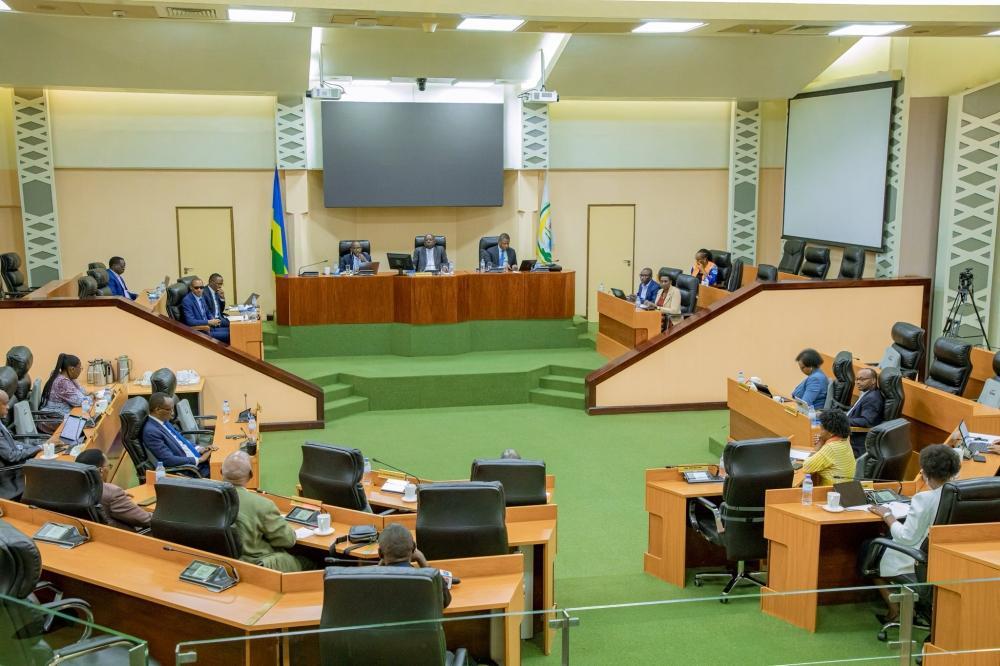Africa-Press – Rwanda. Senators are concerned by the growing number of non-performing loans in the financial sector, warning that misused and unpaid loans could destabilize the broader economy.
This was highlighted during a session on May 19 where members of the senate committee on economic development and finance engaged with financial sector stakeholders to examine issues.
In 2017, non-performing loans in the country’s banks were valued at Rwf135.4 billion, according to a May 19 report by the National Bank of Rwanda (NBR). The figure increased to 176 billion in 2024.
From 2017 to 2024, 2,605 immovable properties were auctioned because borrowers failed to repay their loans.
Sen. Donatille Mukabalisa criticized borrowers who divert loans away from their intended purposes.
“Some people take loans claiming it’s for business or construction, but end up misusing the funds entirely. Financial institutions need to thoroughly assess not just the project but the borrower’s intentions,” she stressed.
Sen. Pélagie Uwera, echoed the need for stronger financial education before loans are disbursed.
“Borrowers must understand that loaned money is not a gift; these are deposits from other citizens. When someone defaults and faces property auction, it affects both them and the entire financial system,” she noted, suggesting a mandatory pre-loan training and certification programme.
Uwera also highlighted gaps in post-loan monitoring and corruption among loan of ficers. “In some cases, borrowers are required to pay bribes to loan officers to access funds, only to end up with less than they applied for. That’s unacceptable,” she said.
Sen. André Twahirwa called for long-term solutions, recommending that financial literacy be taught from an early age.
“Let’s instill financial discipline in our children by introducing credit education in schools. It should become part of our national values,” he said.
Another concern came from Sen. Sosthène Cyitatire, who questioned unfair auction practices.
“Why do some banks demand collateral that’s double the loan value, only to auction it below market price or worse, seize unrelated property? This must stop,” he said.
Despite these concerns, the financial sector is still showing strength. According to the National Bank of Rwanda, the sector’s total assets reached a record Rwf12.9 trillion in December 2024, up from Rwf10.6 trillion the previous year.
The growth was driven by increased deposits, retained earnings, and investment income. Ferdinand Murezi, a financial stability analyst at BNR, reassured stakeholders of the sector’s resilience.
“As of now, 48% of the banks’ assets are in the form of loans; a drop from 55% pre-Covid, but still solid. We are also encouraged that 97% of loans are held by local residents,” he said. Murenzi highlighted that sectors such as construction, retail, and manufacturing remain heavily exposed to non-performance.
“Construction leads with 23.6% of total outstanding loans followed by wholesale and retail trade at 21.7%, household employers at 20.4%, and manufacturing at 12.6%,” Murezi noted.
To mitigate risks, the central bank wrote off Rwf573 billion worth of defaulted loans in 2024, up from Rwf481.8 billion in 2023.
“These are no longer on our balance sheets, but they are still being followed up through legal channels, mainly via auction sales and asset recovery,” Murezi explained, adding that a joint task force involving Rwanda Development Board, the Ministry of Justice, and other institutions, is working on comprehensive reforms, with a report due by the end of June.
RDB’s Registrar General, Richard Kayibanda, downplayed fears of widespread property auctions, noting that only 1.4% of the 177,404 registered collaterals between 2017 and 2024 ended up in forced sales. He pointed to recent reforms like digital auctions and borrower rights to challenge asset valuations that strengthened transparency. Still, he admitted challenges remain in recovering loans once borrowers default.
Pacifique Nkongoli, the Chief Credit Officer at I&M Bank, said loan defaults strain bank profits.
“When a loan is written off, we have to draw from our profits to cover the loss. This money could have been reinvested into the economy. We give clients multiple chances up to more than 90 days before restructuring the loan or proceeding to auction,” he explained.
Jackson Kwikiriza, the Executive Director of the Association of Microfinance Institutions in Rwanda (AMIR), called for stronger financial awareness, especially in rural areas.
“Despite 96% of Rwandans having access to finance, many still lack financial knowledge, particularly around microfinance services. We need better project evaluation in sectors like agriculture and tourism,” he said, adding that climate change and multiple overlapping loans are also fueling defaults.
Damien Ndizeye, the Executive Secretary of Rwanda Consumers’ Rights Protection Organization (ADECOR), emphasized the need for borrowers to fully understand loan contracts before signing.
“People often sign contracts blindly. They should be given at least seven days to review terms. Insurers also need to play a greater role in the loan process beyond just the initial disbursement stage,” he said.
For More News And Analysis About Rwanda Follow Africa-Press






